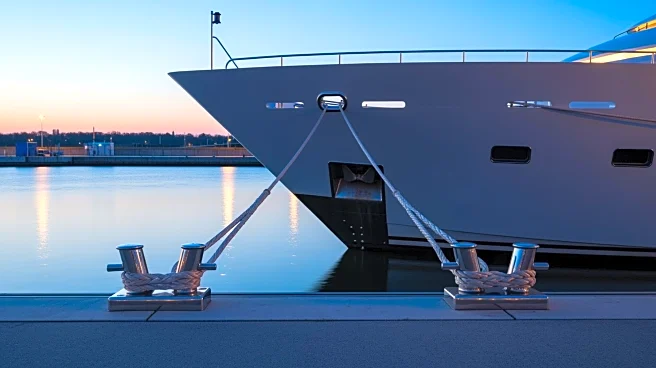What's Happening?
ClassNK has granted Approval in Principle (AiP) to Kawasaki Heavy Industries for its Safety Berthing/Unberthing Assistance System. The system includes a Human Machine Interface designed to improve the safety and efficiency of ship berthing operations.
ClassNK's endorsement supports the deployment of innovative maritime technologies, aligning with its guidelines for automated ship operations. The system is compatible with ClassNK's 'a-SAFE' notation, indicating advanced safety measures for registered vessels.
Why It's Important?
The approval of Kawasaki's berthing assistance system marks a significant step forward in maritime safety and automation. By enhancing the precision and reliability of berthing operations, the system reduces the risk of accidents and improves operational efficiency. This development aligns with global trends towards automation in the shipping industry, offering potential cost savings and increased safety for maritime operators. The endorsement by ClassNK, a leading classification society, underscores the importance of third-party validation in advancing innovative technologies.
What's Next?
As the maritime industry continues to embrace automation, further advancements in berthing assistance systems are expected. ClassNK's guidelines for automated ship operations will likely evolve to accommodate new technologies, fostering innovation in maritime safety. Kawasaki's system may serve as a model for future developments, encouraging other companies to pursue similar solutions. The integration of automated systems into maritime operations could lead to broader changes in industry standards and practices.
Beyond the Headlines
The endorsement of Kawasaki's system highlights the ethical considerations of automation in maritime operations. As technology advances, the industry must address concerns related to job displacement and the balance between human oversight and machine autonomy. The development of automated systems also raises questions about regulatory frameworks and the need for international cooperation in setting safety standards.















